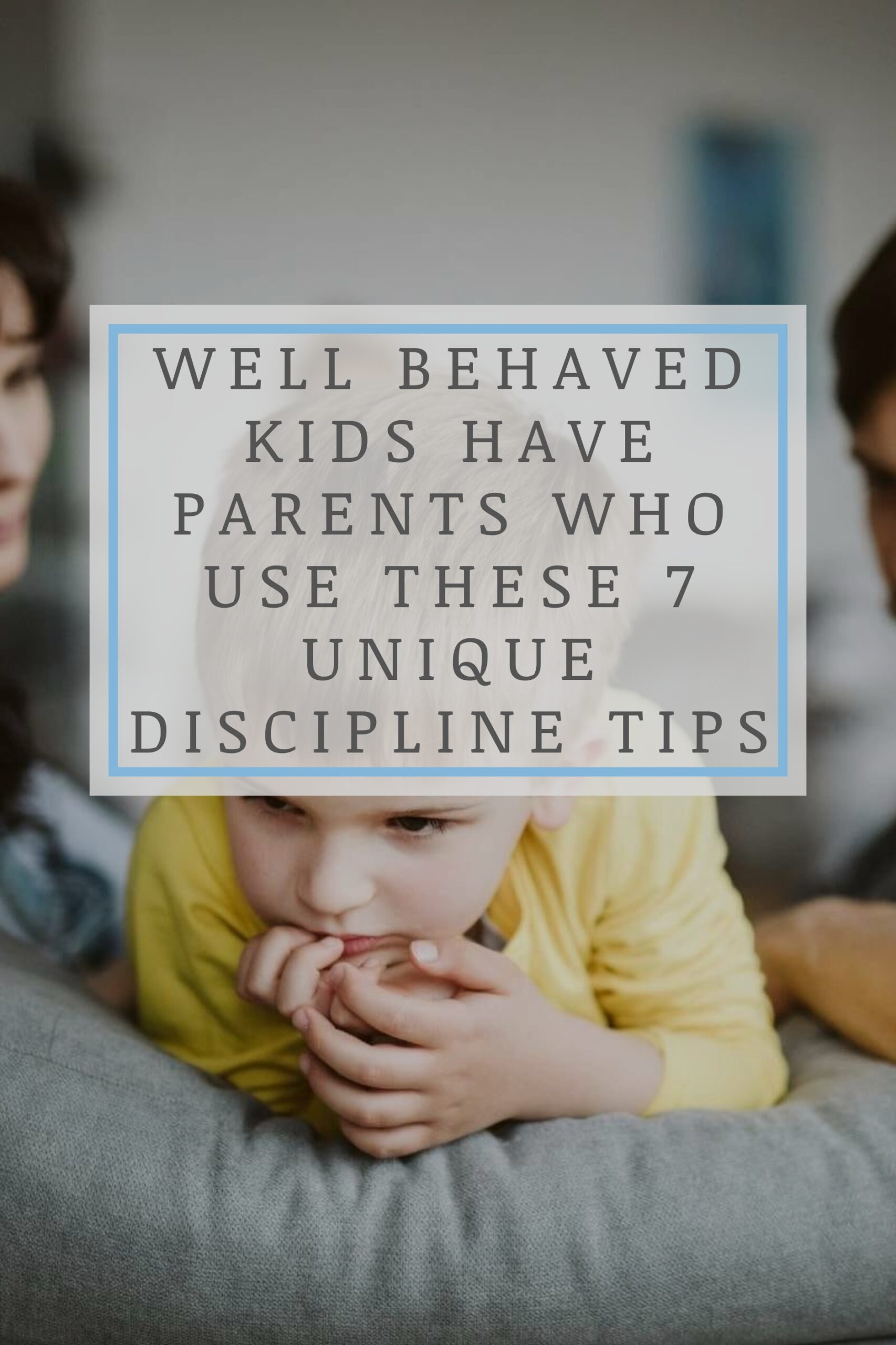Discover the secrets to raising well-behaved kids with these 7 unique discipline tips. Learn how expert parents nurture good behavior in their children while maintaining a positive, friendly approach.
Parenting is a rewarding journey filled with ups and downs. One of the most critical aspects of this journey is discipline. Well-behaved kids are a testament to effective parenting, and it all starts with how parents employ discipline techniques. In this comprehensive guide, we’ll explore seven unique discipline tips that successful parents use to foster good behavior in their children. From setting clear boundaries to using positive reinforcement, these strategies are proven to work. Let’s dive in!
1.Using Clear Communication

Clear communication is the foundation of effective discipline. Successful parents emphasize the importance of clear, age-appropriate communication. This means explaining rules and expectations in a way that a child can understand based on their age and developmental stage. It’s about being a good listener as well, allowing your child to express their thoughts and feelings. Clear communication helps children understand what is expected of them and why certain behaviors are desirable or not.
2.Setting Consistent Boundaries

Consistency is key when it comes to discipline. Successful parents set clear and consistent boundaries for their children. This means that rules and consequences remain the same over time. When children know that the rules are unwavering, they feel more secure and understand the consequences of their actions. Consistent boundaries provide a structured environment in which children can thrive.
3.Practicing Positive Reinforcement

Positive reinforcement is a powerful tool in discipline. This technique involves rewarding good behavior with praise, affection, or small incentives. When children receive positive feedback for their actions, they are more likely to repeat those behaviors. Instead of solely focusing on punishment for misbehavior, expert parents emphasize acknowledging and rewarding positive actions. This creates a positive and motivating environment for children.
4.Leading by Example

Children learn by observing their parents. To raise well-behaved kids, it’s essential for parents to lead by example. This means modeling the behavior and values they want their children to adopt. Parents who exhibit kindness, respect, and empathy in their interactions with others teach their children valuable life lessons. Children are more likely to emulate positive behaviors when they see their parents practicing them.
5.Using Time-Outs Effectively

Time-outs can be an effective discipline strategy when used correctly. When a child misbehaves, parents calmly explain the time-out and its duration. During the time-out, the child is removed from the situation to reflect on their actions. The key to using time-outs effectively is consistency. Parents should follow through with time-outs every time a specific behavior occurs. This helps children understand the consequences of their actions and gives them a chance to self-regulate.
6.Encouraging Independence

Empowering children to make age-appropriate choices fosters independence and responsible behavior. Successful parents provide opportunities for their children to make decisions within defined limits. For example, allowing a child to choose their clothes for the day within the boundaries of dress code rules. This approach builds self-esteem and encourages responsible decision-making, as children learn to weigh the consequences of their choices.
7.Practicing Patience and Empathy

Discipline should never come from a place of anger or frustration. Expert parents approach discipline with patience and empathy. They understand that children are in a constant process of learning and development. Instead of scolding or punishing out of anger, parents use discipline as a teaching moment. They help children understand the impact of their actions on others and guide them toward making better choices in the future.
Final Words
Raising well-behaved kids is a rewarding but challenging journey. Effective discipline is the foundation of good behavior, and these seven unique tips can help you achieve success. Remember to communicate clearly, set consistent boundaries, and lead by example. Embrace positive reinforcement, practice patience and empathy, and encourage your child’s independence. With these strategies, you can nurture your child’s growth and development while maintaining a positive and friendly approach to discipline.
FAQs
How can I start implementing these discipline tips in my parenting?
Begin by focusing on one discipline tip at a time. Start with clear communication and gradually incorporate other strategies as you become more comfortable with them. Consistency is key, so be patient with yourself and your child as you both adapt to these new approaches.
Are there any recommended books or resources for learning more about effective discipline?
Yes, several books offer valuable insights into effective discipline techniques. Some popular choices include “The Whole-Brain Child” by Daniel J. Siegel and Tina Payne Bryson and “Parenting with Love and Logic” by Charles Fay and Foster Cline. These resources provide in-depth guidance on understanding child behavior and implementing effective discipline.
What should I do if my child continues to misbehave despite using these discipline tips?
Consistency is vital in discipline. Ensure that you’re applying these tips consistently and be patient. Behavior change takes time, and it’s normal for children to test boundaries. If issues persist or escalate, consider seeking guidance from a child psychologist or counselor who can provide additional strategies and support.
Is it ever appropriate to use physical punishment as a form of discipline?
No, physical punishment is not recommended. It can have detrimental effects on a child’s emotional and psychological well-being. It’s important to use non-violent, constructive discipline methods that focus on teaching rather than inflicting harm.
How can I handle sibling rivalry and conflicts among my children?
Address conflicts calmly and teach conflict resolution skills. Encourage open communication and help your children find constructive solutions to their disagreements. Promote a sense of fairness and empathy among siblings, and be a mediator when necessary to ensure conflicts are resolved peacefully.
What role does positive reinforcement play in discipline?
Positive reinforcement plays a significant role in discipline by motivating children to continue making positive choices. It creates a nurturing and supportive environment where children feel valued and appreciated for their good behavior. By consistently using positive reinforcement, parents can encourage a pattern of desirable conduct in their children.
